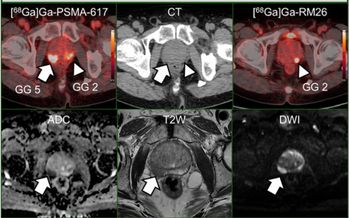FDA Clears AI Software for Creating Synthetic MRI STIR Images
The deep learning SubtleSynth software creates synthetic STIR images that are reportedly interchangeable with conventional sequences obtained from T1 and T2-weighted MRI.
The Food and Drug Administration (FDA) has granted 510(k) clearance for the SubtleSynth software, a deep learning application that provides synthetic short tau inversion recovery (STIR) images from existing T1 and T2-weighted magnetic resonance imaging (MRI).1
Subtle Medical, the developer of the
In a 2023 multicenter study published in the American Journal of Neuroradiology, researchers found that the synthetic STIR images generated with SubtleSynth, a complementary software to Subtle Medical’s SubtleMR software, were “diagnostically interchangeable” with conventionally acquired STIR images.2
“SubtleSynth represents a significant advancement by reducing acquisition time for a common MRI sequence to zero, enhancing operational efficiency," said Ajit Shankaranarayanan, the chief product officer at Subtle Medical. "We believe this software will offer substantial time savings for both new and existing scanners, reduce the need for rescans due to motion artifacts, and ease the workload on radiologists and technologists, ultimately improving patient care."
References
1. Subtle Medical. Subtle Medical receives FDA clearance for industry first AI-powered synthetic imaging software, SubtleSYNTH. PR Newswire. Available at:
2. Tanenbaum LN, Bash SC, Zaharchuk G, et al. Deep learning-generated synthetic MR imaging STIR spine images are superior in image quality and diagnostically equivalent to conventional STIR: a multicenter, multireader trial. AJNR Am J Neuroradiol. 2023;44(8):987-993.
Newsletter
Stay at the forefront of radiology with the Diagnostic Imaging newsletter, delivering the latest news, clinical insights, and imaging advancements for today’s radiologists.














